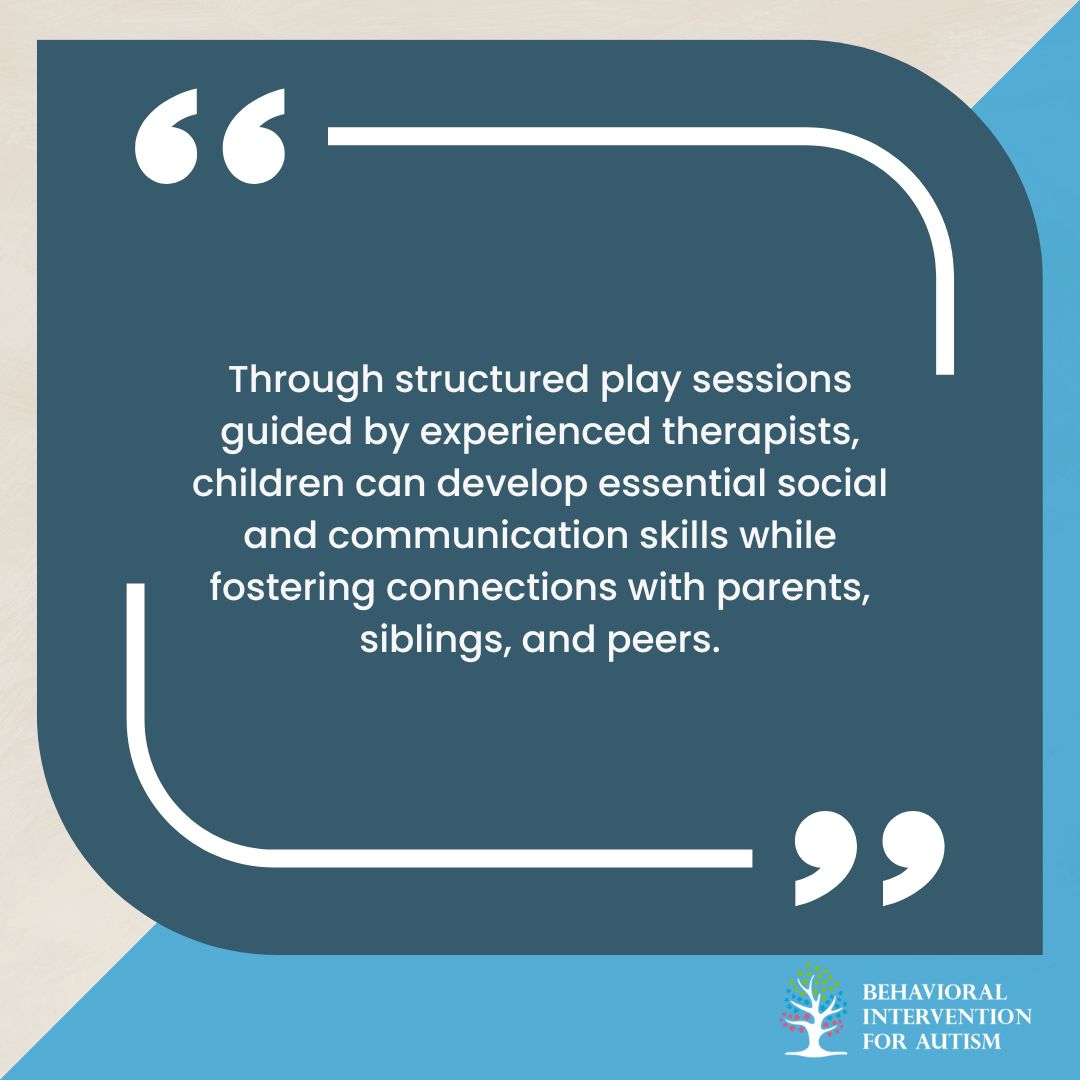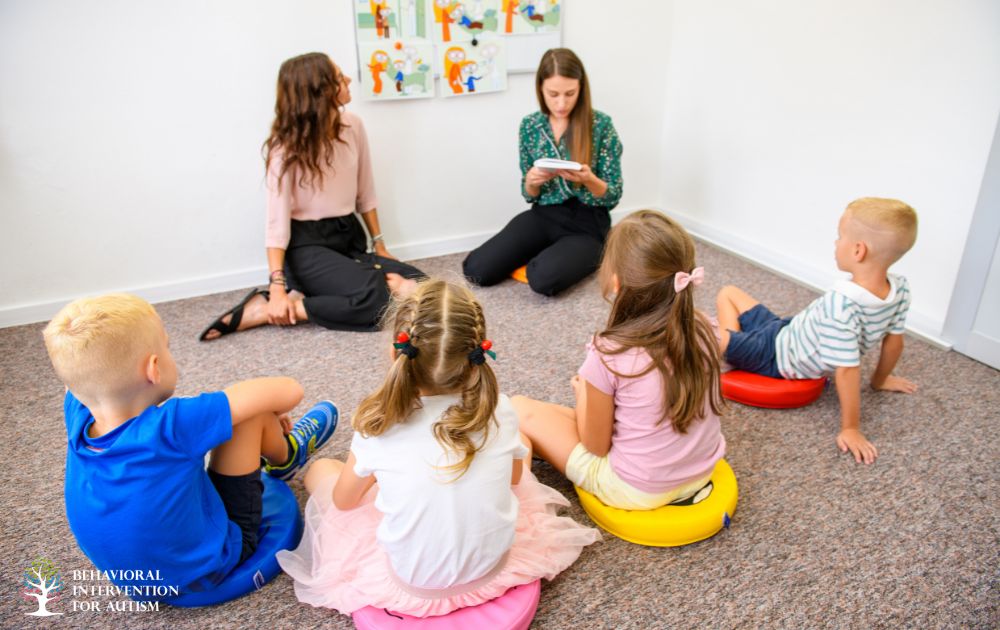
Table of Contents
Autistic children often engage in solitary play, repetitive behaviors, and activities that may hinder their ability to explore and learn through play. While autistic children may require specialized techniques to foster their growth and connection with others, play therapy serves as a vital tool in assisting them in their development.
Understanding Play Therapy
Initially designed for psychotherapy with traumatized or anxious youth, play therapy has evolved to cater to the unique needs of autistic children. Unlike traditional play therapy, which focuses on emotional expression, play therapy for autistic children involves specialists employing specific techniques tailored to their needs.
For instance, the Floortime approach, a play-based technique, capitalizes on the child’s interests to cultivate relationships, communication, and social skills. While some practitioners undergo certification programs, many play therapists rely on extensive experience and training rather than formal credentials.
Why Autistic Children Benefit from Play Therapy
Autistic children often face challenges in social interaction and communication, making it essential for them to engage in interventions tailored to their needs. Unlike neurotypical peers, autistic children may struggle with pretend play. Moreover, their intense focus on specific activities may limit their engagement with the world around them.
Play therapy offers a unique avenue for autistic children to explore their emotions, surroundings, and relationships in a safe and supportive environment. Through structured play sessions guided by experienced therapists, children can develop essential social and communication skills while fostering connections with parents, siblings, and peers.
By actively involving parents and guardians in the therapy process, play therapy promotes a deeper understanding of the child’s needs and strengths. Over time, play therapy can serve as a bridge to building stronger, more meaningful relationships within the family unit, enhancing overall well-being for both the child and their caregivers.
Play Therapy Ideas for Autistic Children
Engaging autistic children in therapeutic play activities can significantly enhance their social, academic, and sensory development. By incorporating games that focus on gross motor, fine motor, and regulation skills, parents and caregivers can create enriching experiences for their children. These play therapy ideas not only promote physical movement but also encourage cognitive growth and social interaction.
Gross Motor Games
Gross motor skills, which involve large muscle groups and coordination, play a crucial role in various everyday tasks and social interactions. For autistic children, honing these skills can be particularly beneficial, fostering improved balance, coordination, and sensory integration.
- Obstacle Course: Utilize painter’s tape to create a dynamic indoor obstacle course featuring zigzags, straight lines for jumping, spirals for spinning, and boxes for leapfrogging. Make it a fun challenge by timing each run!
- Tilt a Ball: Construct a simple ball maze using a cardboard box with a hole cut out at the bottom. Encourage your child to tilt the box and guide the ball through the maze, enhancing hand-eye coordination and spatial awareness.
- Bean Bag Boogie: Explore various movements with bean bags, such as balancing them on feet, tossing them into buckets, or attempting to balance them on the head. These activities promote balance, coordination, and core muscle strength.
- Basketball Balance: Challenge your child to balance one foot on top of a basketball while mimicking foot movements. This game enhances balance and core stability while promoting imitation skills.
- Water Play: Set up a water-filled baby pool or tub with kitchen tools like funnels and cups for sensory exploration and bilateral movement practice. Water play stimulates sensory processing while offering opportunities for motor skill development.
Fine Motor Games
Fine motor skills are crucial for various everyday tasks, from buttoning a shirt to writing with a pencil. Whether it’s sculpting with clay or embarking on a scavenger hunt, these activities offer fun and meaningful ways to promote fine motor proficiency in autistic children.
- Free the Animals: Use painter’s tape to secure plastic toy animals, encouraging your child to peel them off and develop fine motor skills.
- Copy Me: Model clay or therapy putty provides an excellent medium for practicing fine motor coordination. Play “Copy Me” by sculpting shapes or animals, fostering creativity and dexterity.
- Find the Items: Conceal small objects in therapy putty for your child to discover, promoting tactile exploration and fine motor control.
- Tweezers and Tongs: Arrange a relay race using kitchen tongs or tweezers to pick up and transfer craft balls. This game strengthens hand muscles and coordination.
- Sticker Play: Engage in sticker-based activities like Tic Tac Toe or tracing lines to enhance fine motor skills, creativity, and cognitive abilities.
Play Songs, Interactive Fun, and Group Games
Through songs, games, and collaborative experiences, children can enhance their social skills, coordination, and sensory processing abilities in a supportive environment. Discover how these activities can enrich your child’s play therapy journey while fostering joy and connection.
- Scavenger Hunt: Create an exciting scavenger hunt tailored to your child’s interests, encouraging exploration and problem-solving skills.
- Ribbon Wand Dancing: Attach ribbons to wooden spoons for a whimsical dancing experience, promoting gross motor skills and imaginative play.
- Row, Row, Row Your Boat: Enjoy a partner game where children rock back and forth while singing, fostering cooperation and rhythmic movement.
By incorporating these play therapy ideas into your child’s routine, you can provide them with engaging opportunities for growth and development while enjoying quality time together. Remember to adapt activities based on your child’s preferences and abilities, and always prioritize fun and positive experiences.
Working With a Qualified Play Therapist
A skilled play therapist engages with the autistic child on their level, using play as a medium for interaction and learning. They observe the child’s interests and behaviors, adapting their approach to encourage engagement and communication. Through play, therapists help children develop essential skills such as sharing, turn-taking, and imaginative thinking.
As the child progresses, the therapist may introduce more complex social interactions and involve other children to enhance social skills further. Parents are encouraged to participate in the therapy process, learning techniques to support their child’s development at home.
Families seeking play therapy for autistic children can explore resources provided by professional organizations. Additionally, local early intervention programs may offer play therapy services. Whether in-person or through remote sessions, qualified play therapists can provide valuable support and guidance to families navigating autism spectrum disorder.
The Takeaway
In conclusion, play therapy offers a holistic approach to supporting autistic children in their development. By harnessing the power of play, therapists create a nurturing environment for children to explore, learn, and connect with others, ultimately enhancing their social, emotional, and cognitive skills.
Sources:
- https://positivepsychology.com/play-therapy/
- https://www.verywellhealth.com/play-therapy-and-autism-the-basics-260059
- https://www.ncbi.nlm.nih.gov/pmc/articles/PMC9850869/
- 9 Common Obsessions of Children With Autism You Should Know - February 25, 2025
- What is Neurodiversity? A Guide to Embracing Differences - February 25, 2025
- Understanding Hyperfocus in Autism: What It Means and Why It Happens - February 25, 2025



